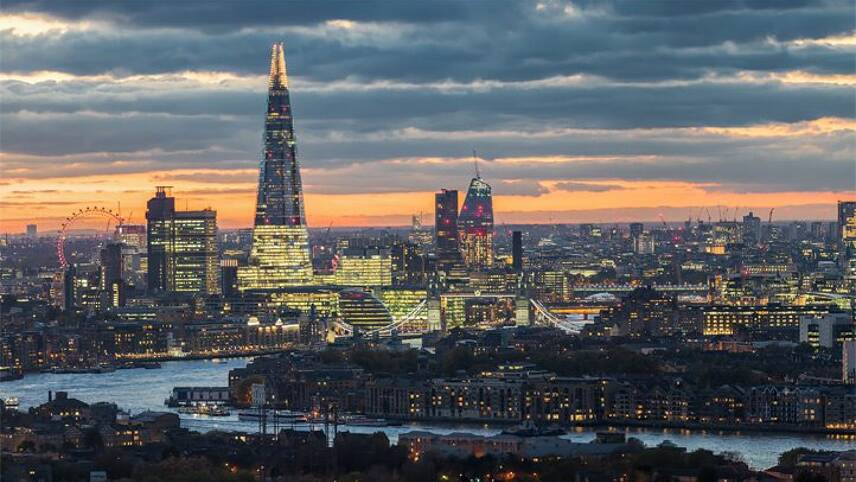Register for free and continue reading
Join our growing army of changemakers and get unlimited access to our premium content

London
In a declaration convened by C40 Cities, the mayors of the cities state that divestment from fossil fuels and increased investment in low-carbon sectors is “a health and environmental necessity” and “an economic imperative” as urban areas seek to recover from the impacts of Covid-19 while putting in place long-term climate adaptation and mitigation measures.
“The financial case for divestment is clear: Current market conditions and the long-term outlook for the coal, oil, and gas sectors reinforce the risks to fiduciaries,” the declaration reads. “Through green investments, we will promote the transition to a more resilient, prosperous and sustainable economy.”
Mayors to have signed the declaration collectively represent more than 36 million residents across Berlin, Bristol, London, Milan, Oslo, Cape Town, Durban, New York, New Orleans, Pittsburgh and Vancouver.
The declaration binds cities to taking “all possible steps” to divest city assets from fossil fuel companies and re-invest them in ways that will promote a “green and just” pandemic recovery. Progress towards this objective will be reported annually to C40 Cities.
Mayors have also committed to engaging with their respective cities’ pension funds to advocate for complete divestment from oil, coal and gas and for the development of robust climate risk management strategies.
As for the private financial sector, the declaration includes a commitment for mayors to use their influence to advocate for stronger ambitions and actions on climate change.
“Citizens around the world are demanding action and it’s time for cities to ditch fossil fuel investments and accelerate green investments that drive low-carbon jobs,” London Mayor Sadiq Khan said. “Global collaboration will help us shift away from fossil fuels, confront challenges and drive climate action.”
Under the London Environment Strategy, launched in May 2018, the capital is striving to become the “greenest” city in the world by mid-century. The capital has a 2030 net-zero target and is currently developing a Green Deal framework to support its delivery.
Bristol also has a 2030 net-zero target. Its City Council has declared both a ‘climate emergency’ and an ‘ecological emergency‘ and set out measures to address these issues over the next decade.
A tipping point for finance
The announcement from C40 Cities comes shortly after WWF published a new film for members of the finance sector, outlining the sector’s historic contribution to emissions and to nature loss and the steps it must take to transform into a force for good.
Called ‘Our Planet: Too Big to Fail’, the film features interviews with the likes of former Bank of England Governor Mark Carney and highlights the potential for the sector to pivot in the wake of the Covid-19 crisis.
It is clear that the pandemic has had a monumental impact on the ways in which businesses and individuals are investing. Analysis from Moody’s revealed that the global issuance of sustainable and green bonds totalled a record $99.9bn (£75.5bn) in the second quarter of 2020, with social sustainability becoming top-of-mind for many.
In recent weeks, new climate commitments have been made by the likes of Morgan Stanley, Credit Suisse, Citi and Natwest. Influential investor coalition Climate Action 100+ has also asked 161 of the world’s largest corporate emitters, including fossil fuel and mining giants, to commit to net-zero targets and prove they are changing their business models and processes accordingly.
Action from Governments seems to have been somewhat more sluggish. According to the energy policy tracker, G20 nations have provided almost $206bn of support to the fossil fuel industry since Covid-19 was first declared a pandemic, compared to $136bn of support for clean energy. The UK’s Treasury has defended its decision to provide unconditional bail-outs to high-emitting sectors and companies.
Sarah George


Again it’s not just fossil fuels!!! When will people wake up about petrochemicals and the vital part they play in all our everyday lives. From the fertilisers that grow our plants to the face masks that protect our healthworkers to the circuitboards that power our electronic devices these and millions of other products we all want and need are made from or with PETROCHEMICALS which come from OIL & GAS.
Divest all you like but don’t come complaining when there is no one left to search for, produce and refine the oil into pterochemicals and we are back on horse & cart (with the associated excremement problem) and wearing hessian undergarments. Yes LYCRA is a Petrochemical.